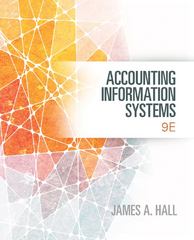Question
Component 1. Each group is to discuss and then diagram a general approach to Pensions. The goal is to set up a series of steps
Component 1. Each group is to discuss and then diagram a general approach to Pensions. The goal is to set up a series of steps that will help to guide you through a wide range of pension examples. So, for example, you might want to start with a simple question: "Is it a defined contribution, or a defined benefit plan?" From there you would then show split in the diagram leading to the next question or instruction for each type. (Note: You may wish to review the prior pension homeworks and class examples before constructing your diagram.)
Component 2a. AFTER designing your diagram, begin to work through the steps you've designed by applying it to the specific data and information provided in this problem. Your final output should include an income statement and balance sheet excerpt for 12/31/2019 and should be supported by a completed pension worksheet and pension journal entry supporting the financial statement data.
Component 2b. Finally, after having completed your pension worksheet, journal entry, and financial excerpts, address the specific "what if" questions that follow.
1. If contributed annually until retirement, will the indicated funding amount be sufficient to fully fund the retirement of the current employees? What amount would you have suggested as an annual contribution to fully fund the plan?
2. Assume that one of the employees met an untimely death in 2019. The result was a present value impact to the 12/31/19 PBO of $5000. How would this change your 2019 Pension journal entry?
Pension Plan Begins: WELPAW Company recently began a defined benefit pension program on 1/1/2019. The retirement plan stipulates that, once retired, each of their 5 employees will receive 1% of their final salary for each year they have worked. Each employee must gradually vest (under the schedule provided below) into their benefits before WELPAW is committed to paying their full retirement annuities. On January 1, each employee has worked at WELPAW for 3 years and, on average, is expected to work an additional 11 years before retirement. They are expected to live an average of 15 years after they retire. WELPAW has a tax rate of 30%, uses a discount rate of 7%, and assumes that employees will receive annual compensation increases of 3% until they retire. On January 1st the average salary is $35,000. On 12/31/19 WELPAW will contribute $15,800 to a fund set aside to pay any future benefits and expect that it will earn a long-run average 12% return. (Hint: It may be useful to think of January 1, 2019 as being equivalent to 12/31/18 for the purposes of setting up your calculations.)
Years worked since the plan was initiated & % vested:
0-1 years of service 0% vested
2 years of service 20% vested
3 years of service 50% vested
4 years of service 60% vested
5 years of service 80% vested
6 or more years of service 100% vested
Step by Step Solution
There are 3 Steps involved in it
Step: 1

Get Instant Access to Expert-Tailored Solutions
See step-by-step solutions with expert insights and AI powered tools for academic success
Step: 2

Step: 3

Ace Your Homework with AI
Get the answers you need in no time with our AI-driven, step-by-step assistance
Get Started


